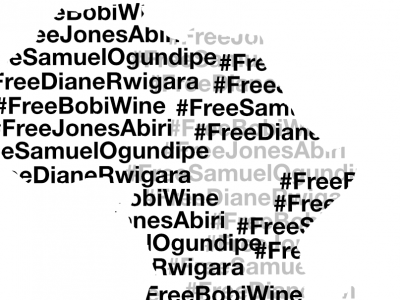Zambian journalist Wilson Pondamali was arrested on July 17 and accused of possessing “restricted information.” According to AFP, police searched Pondamali's home and found documents suggesting that Zambian President Michael Sata is “not fit to govern.” Police also claim to have found evidence linking Pondamali to popular citizen news website the Zambian Watchdog.
Pondamali is the third journalist to be detained by police after media scholar Clayson Hamasaka and Thomas Zgambo, a former Zambia Daily Mail reporter, were picked up last week. Zgambo has since been charged with sedition. Hamasaka has not been formally charged, but is required to report to the police on a regular basis.
On the day of Pondamali's arrest, access to the Zambian Watchdog appeared to be severely restricted for users worldwide. The Watchdog reported that the website was being blocked on all mobile networks in Zambia. The site has undergone a series of technical challenges and indirect threats from government officials in recent months.
Readers outside Zambia could not access the websites on various browsers. One reader, Ku Masangalatoni commented:
Safari cannot open the page because too many redirects occurred!
The Zambian Watchdog reported:
[…] [T]he Zambian government on Tuesday blocked the Zambian Watchdog on all [national ISP] networks including MTN that had earlier rejected the suppression of the most popular news website in Zambia.
Earlier this month, users reported that the site appeared to be blocked on all but one of the nation's ISPs, MTN. The Watchdog responded by moving to a new domain. The site has since moved yet again, to http://zwd.cums.in. Site administrators encouraged readers to visit the site at its new domain, or at its Facebook page.
A sympathizer calling himself blacknigga advised:
[…] My advice to ZWD is to stop migrating the site every time red brick [the Intelligence Service, named after the color of the bricks of its headquarters] has a squeeze on you. It is going to be costly that way and that is exactly what the red brick want you to do. You will lose your readers.
I am in Zambia and I can still access the ZWD behind a proxy server. The technology that red brick is using, deep packet inspection, dpi, to block not only ZWD but the other online publications has its own limitations.
It is time that ZWD capitalised on these limitations of dpis and exploit them to your advantage. My advice is for ZWD to invest in educating its readership on how to use free proxy servers. How many of these free online proxy servers is red brick going to close? There are numerous out there.
[…]
Don’t sweat and run. Where there is a will, a way will always be found. Free Online Access will prevail.
Indeed, moving to a new domain each time the site is blocked could lead to a never ending cat-and-mouse game. Yesterday, the site published an article, “How to access Watchdog in Zambia using proxies,” promoting proxy servers and anonymous browsing tools such as the Tor Project. The site has also recommended that readers copy and send Watchdog articles to friends via email. Reporters Without Borders responded to the situation by creating a mirror site for the Watchdog.
On Brutal Journal, blogger Nyalubinge Ngwende wrote about government’s tampering with the Zambian Watchdog:
The online publication has been stoic even to a point of calling President Sata an ailing dictator—a deliberate choice of the words to provoke the Zambian leader who has chosen to become a recluse, hardly seen and heard in public on many issues affecting the nation and showing high levels of intolerance to the opposition.
It is for the first time since Zambia returned to multiparty politics 22 years ago that a publication has faced incessant government attack to the point of complete closure and random detention of all journalists suspected to be associated with it.
Indeed, Michael Sata has sought to “regulate” online news sites from his first days in office in 2011 when he ordered newly appointed Attorney General Mumba Malila to draft a law that would do so. From this, to the Watchdog's persisting problems, to the arrests of Pondamali, Hamasaka, and Zgambo, it appears that the Zambian government is growing increasingly intolerant of independent, critical media in the country.





3 comments